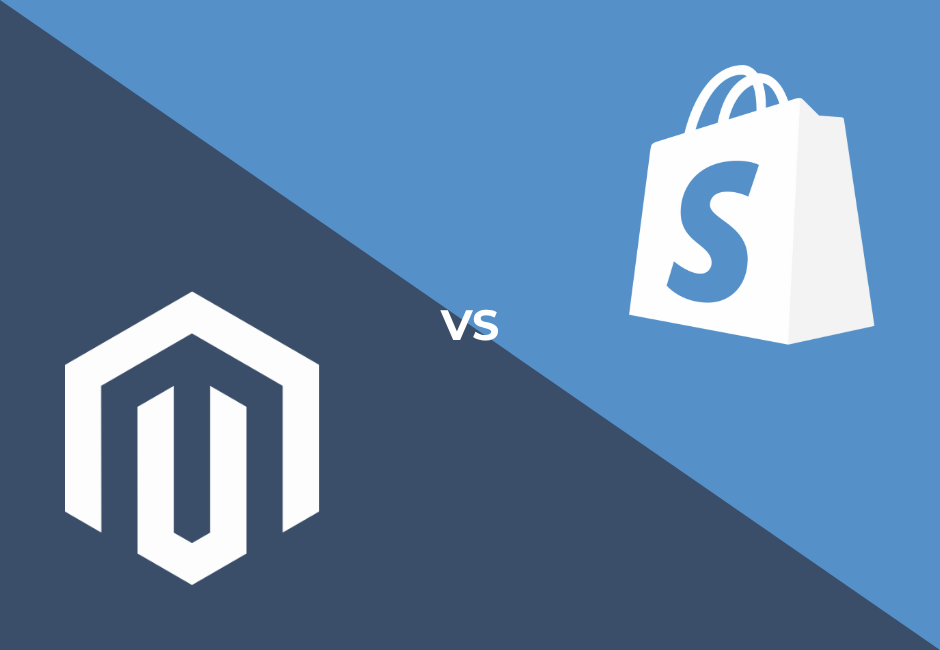Maximizing Marketing Success: Understanding SMS Marketing vs Email Marketing

In the digital age, businesses have an array of marketing channels at their disposal, each with its own set of advantages and strategies. Two popular methods are email marketing and SMS marketing, both of which offer unique benefits and play distinct roles in an effective marketing campaign. Understanding the difference between the two and how they can work together is crucial for businesses looking to maximize their outreach and engagement with customers. In this blog post, we will explore the disparities, advantages, recommended topics, cadence, and success rates of SMS and email marketing, as well as shed light on other essential digital marketing strategies for businesses to consider.
What is the Difference Between Email and SMS Marketing?
Email marketing involves reaching out to potential and existing customers through personalized emails. It is a versatile and cost-effective method that allows for creative content, including images, videos, and interactive elements. On the other hand, SMS marketing focuses on sending concise text messages directly to customers' mobile devices. While email offers more room for in-depth content, SMS delivers brief, targeted messages that often have a higher open and response rate.
Advantages of SMS Marketing:
Higher Open Rates: One of the significant advantages of SMS marketing is its higher open rates compared to emails. Studies have shown that the majority of recipients open text messages within minutes, making it an effective way to capture attention and convey time-sensitive information or offers promptly. For example, a clothing retailer can send an SMS blast to their subscribers, notifying them of a flash sale with a limited-time discount code. The immediacy of the text message encourages recipients to act quickly, resulting in a higher conversion rate.
Immediate Communication: SMS marketing allows businesses to deliver time-sensitive information or urgent offers immediately. It is particularly effective when businesses need to reach customers promptly, such as by sending order confirmations, appointment reminders, or event notifications. For instance, a salon can send an SMS reminder to customers a day before their scheduled appointments, reducing no-shows and increasing customer satisfaction.
High Engagement: Due to their concise nature, SMS messages often capture users' attention, resulting in better engagement and response rates. With limited characters, businesses need to focus on delivering a clear and compelling message. For example, a restaurant can run an SMS campaign offering a free dessert to customers who make a reservation within the next two hours. The simplicity of the offer and the ease of response through a text message encourage higher engagement and immediate action.
Wider Reach: SMS marketing can reach a broader audience as mobile devices are widely accessible and used by people of all demographics. It allows businesses to connect with customers who may not have regular access to email or prefer communication through text messages. For instance, an automotive service center can use SMS marketing to send service reminders and discount offers to customers who may not regularly check their emails but are more likely to receive and read a text message.
Advantages of Email Marketing:
Versatility and Rich Content: Email marketing provides the ability to create visually appealing campaigns with various content formats, such as images, videos, and interactive elements. Businesses can design newsletters, product updates, or promotional campaigns with engaging content that showcases their products or services. For example, an e-commerce store can create a visually compelling email featuring new product arrivals, customer reviews, and a call-to-action button to encourage recipients to visit their website and make a purchase.
Detailed Analytics: Email marketing platforms offer robust analytics that allows businesses to track open rates, click-through rates, conversions, and other valuable metrics. These insights provide data-driven decision-making for campaign optimization and understanding customer behavior. For instance, a software company can analyze the click-through rates of its email campaign and identify which features or benefits generate the most interest. This data can then be used to refine their marketing message and improve future campaigns.
Personalization: Emails can be tailored to individual recipients based on their preferences, interests, and previous interactions with the brand. Personalization enhances customer engagement and increases the likelihood of conversion. For example, a travel agency can segment its email list based on customers' travel preferences and send personalized recommendations for vacation packages or destinations. By offering relevant content, the agency improves the chances of recipients booking their next trip through their services.
Cost-Effective: Email marketing is generally more cost-effective compared to other marketing channels, as it requires minimal investment in terms of design and delivery. With email marketing platforms and automation tools, businesses can efficiently manage large subscriber lists and create automated email sequences. For instance, a nonprofit organization can use email marketing to nurture donor relationships by sending personalized thank-you emails after donations, providing updates on the impact of their contributions, and sharing upcoming fundraising events—all at a relatively low cost.
SMS vs Email Marketing: Recommended Topics
When deciding which marketing channel to use for specific topics, consider the following:
- SMS is ideal for time-sensitive offers, promotional messages, flash sales, event reminders, and urgent notifications. Short, impactful messages work best for these types of communications.
- Email is more suitable for newsletters, product updates, long-form content, and nurturing customer relationships through personalized communication. With more space for content, emails allow businesses to provide detailed information and engage customers on a deeper level.
Take these considerations in mind when planning out your long-term marketing strategy for both email marketing and sms marketing campaigns.
SMS vs Email Marketing: Cadence
Determining the frequency of communication is crucial to avoid overwhelming or irritating recipients. A good rule of thumb is to:
- Use SMS sparingly to ensure it remains impactful and doesn't lead to user opt-outs. Limit SMS messages to urgent or time-sensitive communications that require immediate attention.
- Develop an email marketing calendar that balances consistent engagement without bombarding subscribers with excessive emails. Test different frequencies to find the optimal balance that keeps subscribers engaged, maximizes deliverability, and minimizes unsubscribes.
SMS vs Email Marketing: Success
Success in SMS marketing is often measured by open rates, response rates, and conversions. As SMS messages have high open rates, businesses can expect a significant portion of recipients to read and act upon the messages. Tracking responses and conversions will help evaluate the effectiveness of the SMS campaign. Email marketing success is typically evaluated through open rates, click-through rates, conversions, and overall campaign performance. Analyzing these metrics will provide insights into how well the email campaigns resonate with the target audience, which subject lines or content drive higher engagement, and the effectiveness of the call-to-action.
How Do Email and SMS Marketing Work Together?
While email and SMS marketing has distinct advantages, they can complement each other to enhance overall marketing effectiveness. By using email to provide more detailed information and SMS to deliver concise and time-sensitive messages or reminders, businesses can create a seamless multichannel experience that engages customers at different touchpoints. For example, a fitness center can send a monthly newsletter via email, featuring workout tips, success stories, and upcoming events. Simultaneously, they can use SMS to send reminders about class schedules, special promotions, or last-minute changes, ensuring members stay informed and engaged.

What Other Digital Marketing Strategies Should Your Business Utilize?
In addition to email and SMS marketing, businesses should consider the following digital marketing strategies to maximize their online presence and customer reach:
- SEO (Search Engine Optimization): Optimizing your website and content for search engines helps improve organic visibility and drive targeted traffic to your website. By conducting keyword research, optimizing on-page elements, and engaging in building relevant content for potential customers, businesses can increase their chances of ranking higher in search engine results.
- Advertising: Paid online advertising, such as search ads, display ads, and social media ads, can effectively increase brand visibility, drive traffic, and generate leads. By targeting specific demographics and interests, businesses can reach their desired audience and maximize their advertising ROI.
- Content Marketing: Creating valuable and relevant content, such as blog posts, videos, and infographics, establishes your brand as an industry authority and attracts and engages your target audience. Consistently producing high-quality content and promoting it through various channels can drive traffic, enhance brand reputation, and generate leads.
- Web Development: Ensure your website is visually appealing, user-friendly, and optimized for conversions, providing an excellent user experience across different devices. Optimizing website speed, implementing intuitive navigation, and incorporating clear calls-to-action can improve user engagement and drive more conversions.
Digital Marketing with 20North
For businesses seeking expert guidance in their digital marketing endeavors, 20North offers a comprehensive range of services, including email and SMS marketing, SEO, paid media, and web development. With a team of professionals who excel in excellent communication, possess deep industry knowledge, and demonstrate efficiency and organization, 20North is equipped to support businesses in achieving their marketing goals. Contact us today for your marketing needs!Understanding the nuances and advantages of both email and SMS marketing is crucial for businesses aiming to leverage these channels effectively. By recognizing the recommended topics, establishing an appropriate cadence, analyzing success metrics, and combining email and SMS marketing, businesses can create a well-rounded multichannel strategy. Additionally, incorporating other digital marketing strategies like SEO, advertising, content marketing, social media marketing, and web development can further enhance a business's online presence and engagement with its target audience. With the support of experienced digital marketing professionals like 20North, businesses can navigate the digital landscape and maximize their marketing success.



